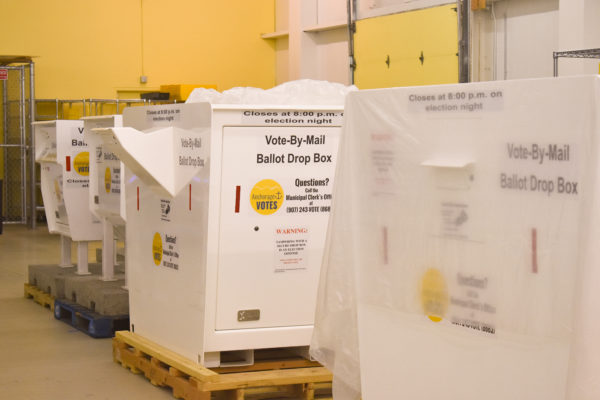
Many of the leading candidates for Anchorage mayor say supporting the city’s youth is a top priority.
During a recent child and family issues forum hosted by Alaska Children’s Trust, most candidates agreed improving access to early education and childcare and eliminating food and housing insecurity are important, for COVID-19 recovery and Anchorage’s future. But their plans differ on how to achieve and fund those goals.
Former municipal manager Bill Falsey, former assembly member Bill Evans, Assembly member Forrest Dunbar and former mayoral special assistant George Martinez all spoke in support of quality pre-kindergarten access and affordable childcare.
“The lack of affordable childcare is a huge driver of income inequality,” said Bill Evans. “It is also a huge driver of gender pay equity issues. We have to find a way to solve that.”
Evans said the city budget is too dependent on property taxes, touching on the idea that Anchorage should be considering alternative forms of revenue to fund access to childcare.
Falsey was a little more explicit in his plan for universal pre-K, which would use both federal funding and a ballot measure, for which he estimated costs at $50 million.
“The biggest piece of missing local infrastructure is expanded affordable, voluntary, pre-K,” Falsey said, arguing the lifelong benefits of investing in pre-K for young children outweigh the initial costs of the program. “It’s a good part of why I’m running for mayor.”
Dunbar said he would partner with the school district to expand pre-K options, prioritizing the city’s most vulnerable children. He also proposed providing parental leave and childcare, where possible, for municipal employees.
“The municipality is one of the largest employers in town and must set the standard for what valuing parents looks like in the workplace,” he said.
Martinez suggested a ballot initiative to allocate a portion of the city’s marijuana tax to fund pre-K investment.
Robbins was more ambivalent about expanding pre-K, arguing the focus should be on improving the quality of education for existing students.
“We’re not providing the proper education to the kids that we’ve got already, he said. “It’s really important that we take a look at the kind of education that we’re providing to our kids, whether they be five years old or 15 years old. I think that I support early education. I’m not sure I could support pre-K.”
Another frontrunner, Dave Bronson, was not present at the forum. Candidates Heather Herndon and Jeffrey Brown also participated.
Food and housing insecurity is another issue impacting Anchorage youth that, Martinez pointed out, pre-dates COVID-19.
“We’ve always had people with food, housing insecurity issues. [Anchorage] is an incredibly difficult city to live in if you don’t have certain privileges or access,” he said.
Even so, most candidates acknowledged ensuring access to food and housing is central to economic recovery after the pandemic.
Robbins said getting people back to work and lowering unemployment will help address issues of food and housing insecurity.
Martinez, Falsey and Dunbar stressed the importance of making local aid and federal benefits like SNAP and WIC more accessible, especially to people with a language barrier.
“Too often people who need assistance the most are the ones who are left behind in relief programs, either because the program is difficult to access or because they don’t even know what resources are available,” said Dunbar, adding that his administration would provide outreach to residents with disabilities or language barriers that might prevent them from accessing resources.
Falsey, Evans and Dunbar also highlighted the need for more affordable housing in Anchorage. Falsey pointed to work he has done to incentivize construction downtown and along transit corridors. Evans suggested permitting and development reforms. Dunbar referenced his work on the Assembly to promote accessory dwelling units and invest in renewable energy to lower energy bills.
Watch the full candidate forum here.
According to the municipal clerk’s office, voters should receive their ballots for the upcoming election by Monday, March 22. The vote by mail election is April 6.
Kavitha George worked at Alaska Public Media from 2021 to 2024. Her coverage areas included statewide politics and climate change.





